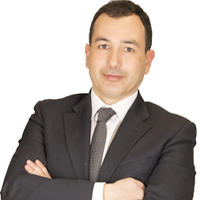Scope of our consultancy: ASCERTAINING THE KNOW-HOW OF A COMPANY

Our managing director, Matteo Pes, recounts a recent case regarding the definition of a company’s know-how.
The summary of the case:
The question:
At the commencement of 2016, a famous Italian fashion house, with thousands of employees and numerous production sites, asked our assistance to apply for the taxation regime of the Patent Box on the basis of the fashion house’s know-how.
Advice offered:
BIESSE has carried out numerous audits at the most important production sites of the fashion house in Italy, which also deals with house furnishing and accessories. Our consultants proceeded to interview the key production managers, designers, technicians, quality control managers, sample designers, raw material purchasers and the legal department. All departments were duly visited.
For each department’s function, a document has been drafted that represents a detailed snapshot of the company's know-how according to the Industrial Property Code (Articles 98 and 99) and the latest Italian and European jurisprudences.
Every aspect of the daily working routine of each department has been analysed in detail, adopting an independent point of view “out of the box”.
The counsultation was both intricate and thorough, taking months of implementation and frequent travel. After working in the industry for many years, the staff tends to drift into a routine shaped by personal knowledge, experiences and company procedures, that after years of practicing is seen like a normal workflow, while in fact is a valuable intangible company asset as know-how.
The documents drafted by BIESSE have been attached to the application for admission to the Patent Box tax regime filed with the competent Italian fiscal authorities.
Prompt:
The know-how protection is granted to business information and technical-industrial experience, including commercial information and experience, subject to the legitimate control of the owner, as long as that information:
a) is confidential, in the sense that as a whole or in its precise configuration and combination of its elements it is not generally known or easily accessible for experts and operators in the field;
b) has an economic value inasmuch as it is confidential;
c) is subject, by the persons to whose legitimate control it is subject, to measures to be considered reasonably adequate to keep it confidential.
Eng. Matteo Pes
- BIESSE IP
Engeneer, Italian Patent Attorney, European Patent Litigator and Attorney
